A decaying Newfoundland community voted overwhelmingly to be relocated to the mainland. But thanks to ten mostly anonymous holdouts among them, they lost their best chance to leave.
Newfoundland’s coast is dotted by ghosts of communities past, lifeless towns born and sustained on a once thriving fishing industry. The community of Little Bay Islands is one of them. LBI, as locals call it, is home to 95 souls. Or 72, depending on who you ask. They are plain, decent, hardworking folk, the wearers of unfashionable fleeces and proud drinkers of respectable, if uninspired, Canadian lagers. The town once had 800 residents, and in an alternate future it would have had zero: its citizens, flush with government cash, dispersed to more prosperous towns scattered throughout the province, their former home left to the whims and torments of encroaching wilderness.
But that’s not how it happened.
The story of the life, death, and life of Little Bay Islands begins in another era. In the decades before 1949, Newfoundland, not yet ready to become Canada’s newest province, was still a Dominion of the British empire. Being a fisherman still meant a secure and proud life, and LBI was a fishing town. Men went out to sea; women ran households, raised children, stitched sails and clothes. Everyone in town knew each other.
But when the fish began to disappear, help didn’t come. The cod went first, in 1992. The town puttered along. Then in 2009, LBI’s only real job creator, a crab-processing plant, closed. There is no store or gas station; basic services are a 45-minute ferry ride away. The lack of a fire department has forced the town council to try and sell off the public barbeques for insurance reasons. Residents were left with nothing but each other. They’d soon learn that wasn’t enough.
The government offered $100,000 per household for a ticket off the island
The provincial government has long had an answer for communities like LBI no longer able to sustain themselves: resettlement. If a community approached the government with a request to be resettled, and over 90 percent of residents voted for it in a referendum, the government in essence paid the town to move. That’s what happened throughout Placentia Bay and Bonavista Bay. Once everyone had left, the town’s power and water were shut off, and nature took its course.
In 2011, LBI thought about approaching the government with a request for resettlement assistance. At the time, the town was still uncertain about leaving. This was their home, after all. When you leave a town, you don’t just leave behind the physical space; you leave behind memories, shared histories.
The government offered CA$100,000 per household for a ticket off the island. Only 60 percent of residents expressed interest—far shy of the 90 percent that would be needed in the official community vote. But LBI’s decline continued, and in April 2013 an official request for resettlement was made. By then the province’s offer was $250,000 per household, plus up to $20,000 for dependents. Ballots were mailed out in October 2015 for the official vote.
Of the 95 registered voters, 85 voted for resettlement, or 89.47 percent. The vote had failed by half a percentage point.
A January 2016 government memo acknowledges in bureaucratic prose that the resettlement policy is “silent on the appropriateness of using rounding for determining the community’s vote.” In the end, the government did not accept 89.47 percent—90 meant 90. “As such, Government’s consideration of the Little Bay Islands relocation request will stop.”
Now, LBI’s residents—the 85 who voted to leave and the 10 who voted to stay—are still living together on their little island. What, I wondered, becomes of a small community thus divided?
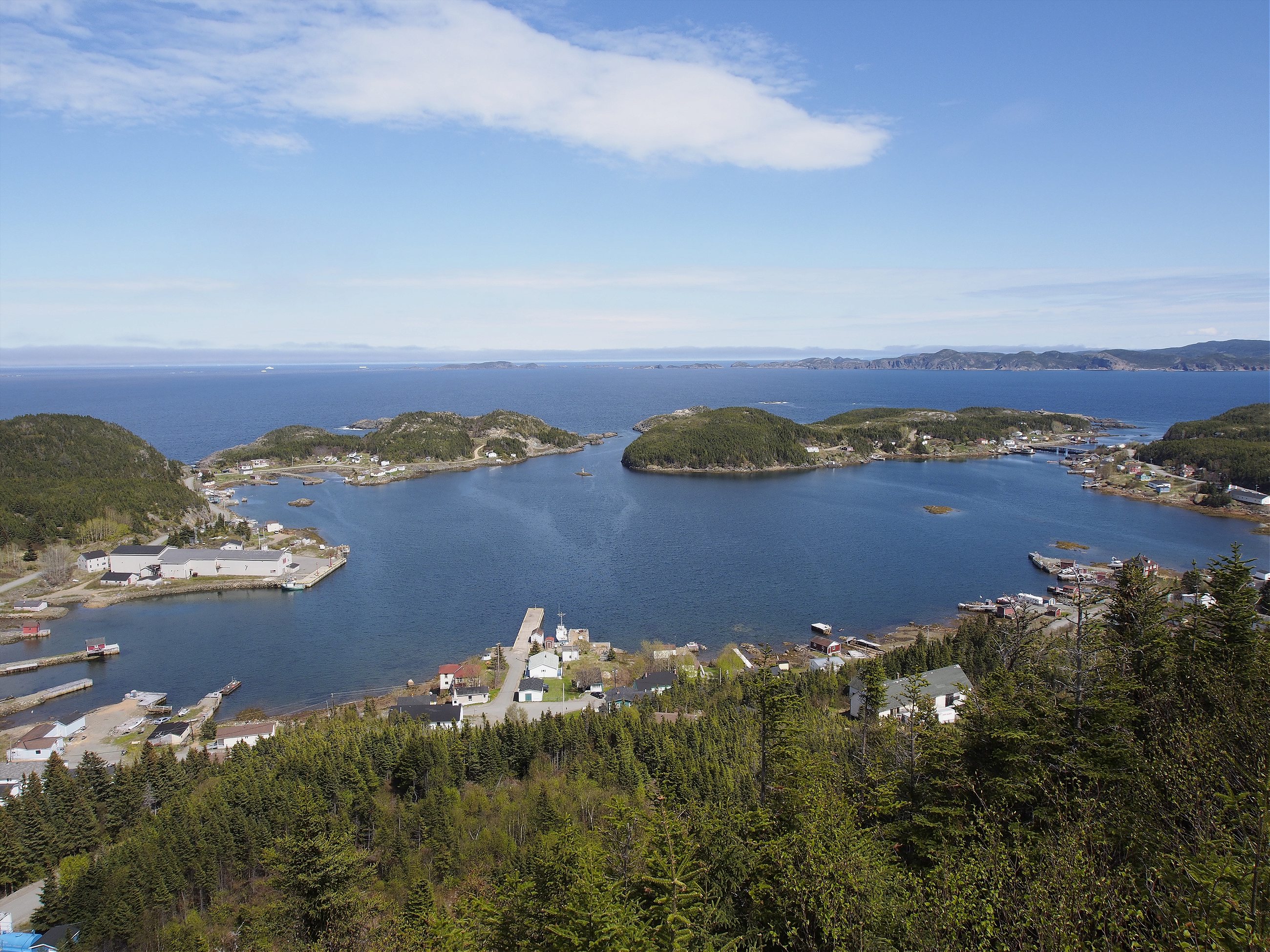
I first read about resettlement in the 2014 novel Sweetland, by Newfoundland author Michael Crummey. I was struck by the crassness with which change can force someone to confront his place in the world, or lack thereof. When I heard a news report about LBI and how resettlement was still such a live issue in Newfoundland, I wanted to see for myself the toll it was taking. In June, I traveled to LBI to find out.
No one’s being held hostage—LBI’s residents are free to leave on their own, though, given how unlikely it is to sell a home on the island, many would be stretching their finances. But LBI is a place where 10 people prevented 85 others from receiving $250,000 and a more secure future.
Perry Locke, LBI’s outspoken former mayor and an employee of Newfoundland Hydro is one of two people employed on the island and is open about being one of the 10. Talking to him leaves little doubt about what it’s been like since the vote.
“I wouldn’t wish this process on anybody,” he told me. Locke said he feels branded. You kept me from $250,000. “It makes life terrible when you live here year round. People look at you, or won’t look at you, and don’t want to talk to you.”
Perry and his wife, Kim Locke, have a 16-year-old son, Shane. At the time of my visit, Shane was the only young person living full-time on the island, but this year, he’s leaving to attend school on the mainland, leaving LBI childless. Kim told me she has been almost completely ostracized for being a no voter. “Most of the time it’s just the three of us,” she said, “and that’s no life.”
My visit left me feeling that the Locke family aren’t the only ones who feel deprived. LBI’s residents are warm and charming with their small-town-quirky manners. The natural surroundings are beautiful. But actually living on the island is more like waiting, anxiously and bitterly, for some unknown development to neatly bring to a close a once-storied community whose best days are behind it.
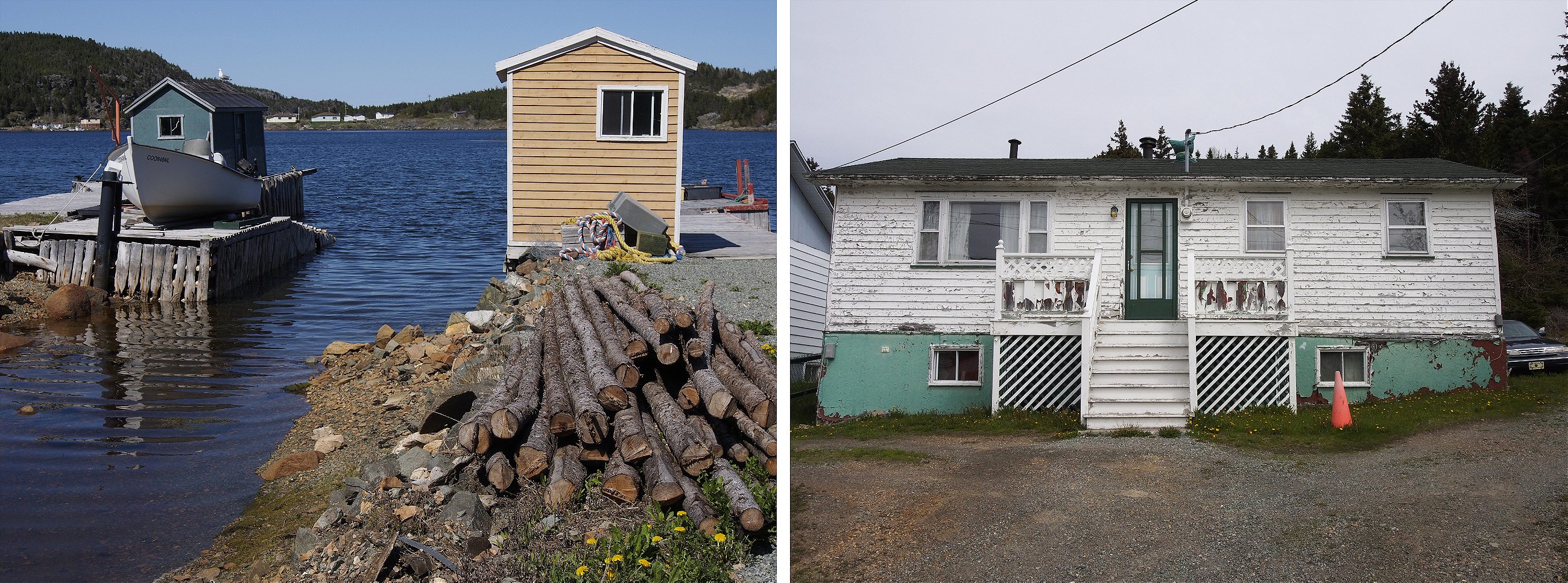
There was one other car waiting to take the ferry to LBI. The ferry never runs at capacity. The workers don’t mind; they get paid either way. The ferry drops you off on the backside of the island, leaving you to drive through hillsides of a deep-green forest that rings its way around everything but a small collection of homes that push out into a quiet, peaceful bay.
If you’re there in June, icebergs dot the horizon. It could be a movie set—pretty, but also ghostlike. Hanging laundry and the occasional hum of a quad bike are the most frequent reminders that people still live on LBI. With the sun shining, the serenity of it all makes the isolation enchanting.
Little Bay Islands isn’t Newfoundland’s first experiment with resettlement. Populated with coastal towns (in Newfoundland, they’re called outports) tied to a declining fishing industry, the province has been resettling communities since 1954. It was then, under the leadership of Premier Joey Smallwood, that the province decided it would be better to move people from the more isolated outports to “growth centers,” such as Arnold’s Cove, pop. 1,200, where they’d be closer to services like health and education.
Over the next 21 years, 28,000 Newfoundlanders were resettled, but many felt pressured into moving. Initially, each family was paid just $150 to help with the costs of relocation. With the program growing, the payment was raised to $1,000 in 1965.
Such a paltry sum did little to ease the hardship of moving, fueling the controversy around a program that left deep scars on those who felt forced from their homes and into communities that struggled to welcome newcomers.
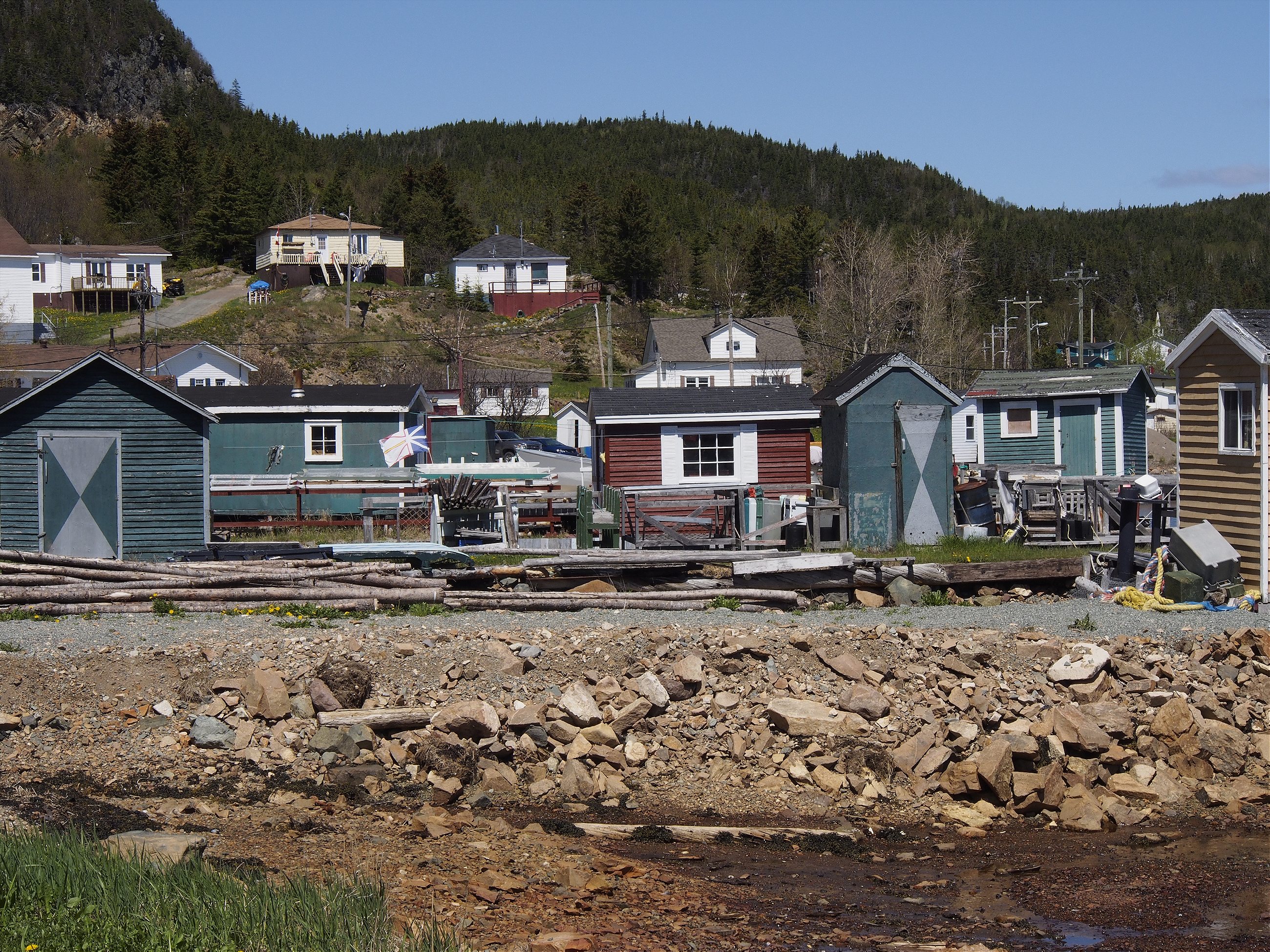
Mentioning resettlement’s past still conjures up images of homes literally being towed across the water to new beginnings. Despite the fact that receiving communities were considered better off, it was all relative. Newfoundland has always been one of Canada’s poorest provinces, and continues to face real economic challenges to this day. It was never going to be easy for a slightly less poor community to absorb new residents in need of jobs and services.
Trying to decide if the program succeeded depends on who you talk to. Either way, after Smallwood left office in 1972, subsequent governments tried to avoid resettlement unless a community overwhelmingly wanted assistance to relocate.
Whether or not government should be responsible for assisting with resettlement in these instances is a whole other issue. A widespread belief that the economic depression facing Newfoundland’s outport communities was aggravated, or even brought about, by government mismanagement of the fisheries, makes it easier for people who once prided themselves on their self-reliance to feel some sense of entitlement.
To receive the government payout, the request needs to pass a bureaucratic cost-benefit analysis. This stage, after the official community request is made, consists of the government calculating whether paying out the resettlement funds would be cheaper than continuing to provide services to the community for a period of 20 years. In LBI’s case, documents reveal the government calculated it would save $3 million through resettlement. That projected savings paved the way for the 2015 vote by permanent residents who, in the two preceding years, spent at least 183 days a year on LBI.
We had our own doctor here one time
Growing up on LBI, Gord Weir spent his life on the water, fishing. Like most boys his age, he followed in his father’s footsteps, becoming a fisherman while still a teenager. For years he and so many others kept the same routine: springtime fishing in the bay, up the coast of Labrador for July-September, and then back in the bay in October. Then it was employment insurance through to the next spring. In between, he was also actively involved in local politics and the local fishing union. He proudly tells of standing in the visitor’s gallery of Canada’s parliament in Ottawa when Pierre Trudeau, father to Justin Trudeau, was Canada’s Prime Minister.
During Weir’s formative years on the water, LBI was a powerhouse in the Newfoundland fishery. With boats and crews coming from as far away as Portugal, the LBI of yesteryear was a bustling economic engine. Its bay and wharves crowded with each onset of the cod fishing season. Mackerel, ground fish, crab, and lobster were also fished in abundance. James Strong Ltd., the main merchant, put the community to work building schooners that fished far up Newfoundland’s coast, into Labrador. On busy Saturdays, women would stand in line for hours to buy their groceries only for the store to close. There were several stores, two churches, a school filled with students. “We had our own doctor here one time, for goodness sake,” Weir said with a measure of disbelief.
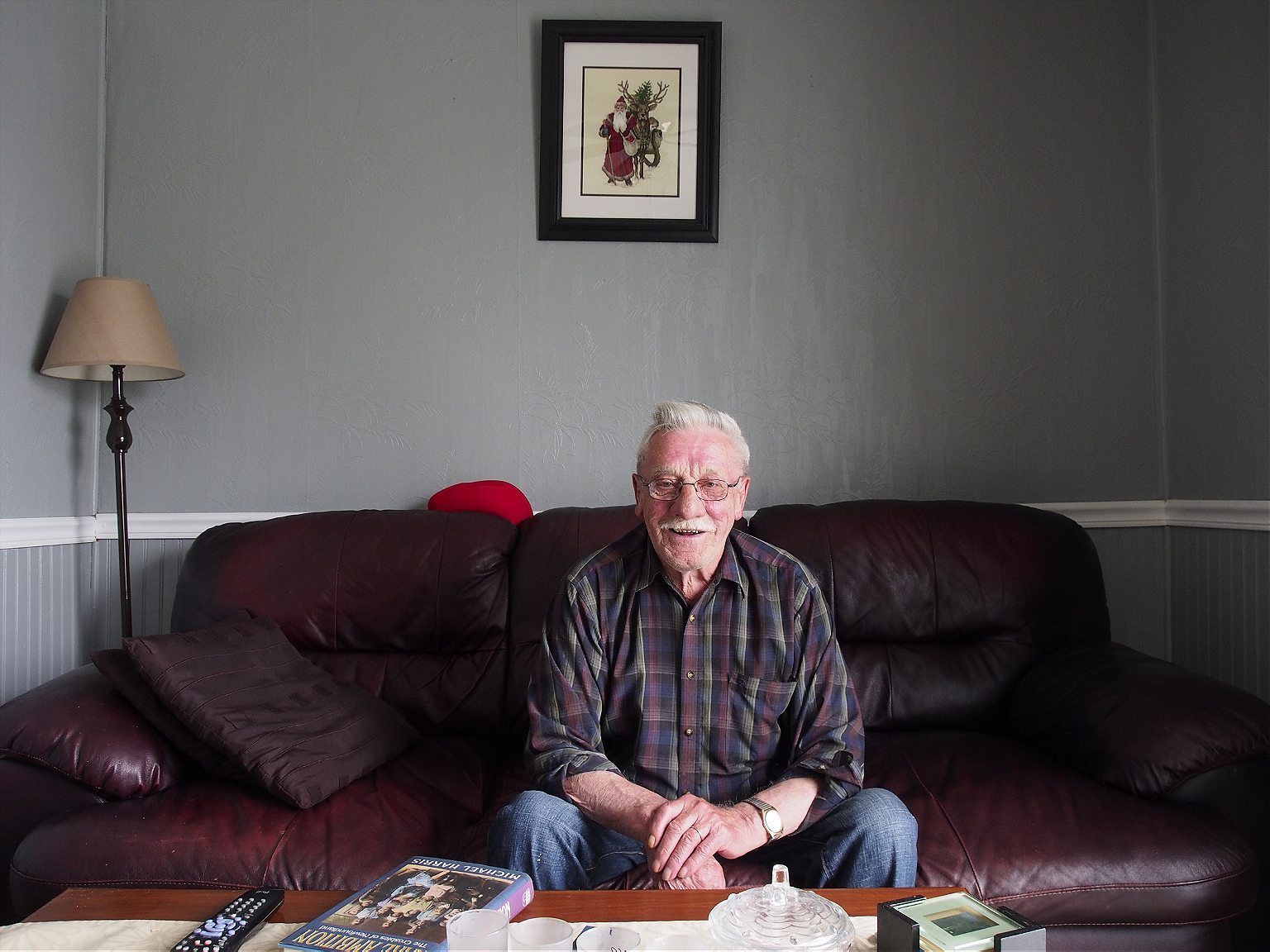
In 1973, George Jones, a third-generation LBI businessman whose family operated a freight business bringing goods from St. John’s to LBI and surrounding bay communities, opened up a crab processing plant, only the second of its kind in the whole province. LBI’s future looked solid.
Then, in 1992, the cod stock collapsed. Overfishing off Newfoundland’s coast led to falling cod catches through the 1970s and 1980s until it reached a breaking point, landing the Newfoundland and Labrador Atlantic Cod on Canada’s endangered species list. A fishing moratorium was imposed. Licenses were bought back by the government. The province’s economic backbone disappeared. Weir stopped fishing in exchange for government money. “But they didn’t pay you for your losses. It was enough for the bare essentials.”
Seeing the writing on the wall, young people started moving, including Weir’s children. Two of his children stayed in Newfoundland, one left for British Columbia on the other side of the country, another found seasonal work in Nova Scotia.
Then in 2009, the crab plant closed. Since the plant’s opening in 1973, Newfoundland had issued several more crab processing licenses. By the time the plant was sold in the early 1990s to new owners, the Daley brothers, who were not from LBI, other plants operating on the mainland could get products to market more cheaply. As more plants on the mainland opened up, the economics of a plant on LBI didn’t make sense.
Since it was mostly women who had done the processing, they now joined their unemployed husbands at home collecting temporary government benefits (called Employment Insurance in Canada). Even with the plant closed, the license to process crab was still in the town’s name, and that hadn’t been taken away. A glimmer of hope remained. In 2011, the license was taken back.
“That was our downfall, no question about it,” Weir told me, a sentiment echoed by just about everyone else I spoke to.
One place wins, another one loses
As if foreshadowing the town’s fate, the plant now stands abandoned and decayed—an imposing, gray industrial building on the edge of one of the town’s two roads, overlooking placid bay waters.
One afternoon I walked the length of an empty Main Street over to the crab plant. The painted sign bearing the name of its last owners, “Eveleigh’s Seafood Inc.,” was peeling off. Its grounds were unkempt, overtaken by long grass and weeds. Unlocked doors and partially-boarded up windows opened up to an empty shell of a building, concrete floors strewn with garbage and dust. A flatbed truck was parked along one of the sides and looked oddly out of place.
Coming back around front I heard voices. A worker’s van was parked out front. The crew of four asked that I not take their picture or use their names; their job leaves them few friends. Sent from the provincial capital, St. John’s, they were at the plant to transfer some of its remaining industrial and cooling machinery to a farmed salmon plant elsewhere in Newfoundland, which employs 350 workers.
“One place wins,” one of the workers told me, “another one loses.”
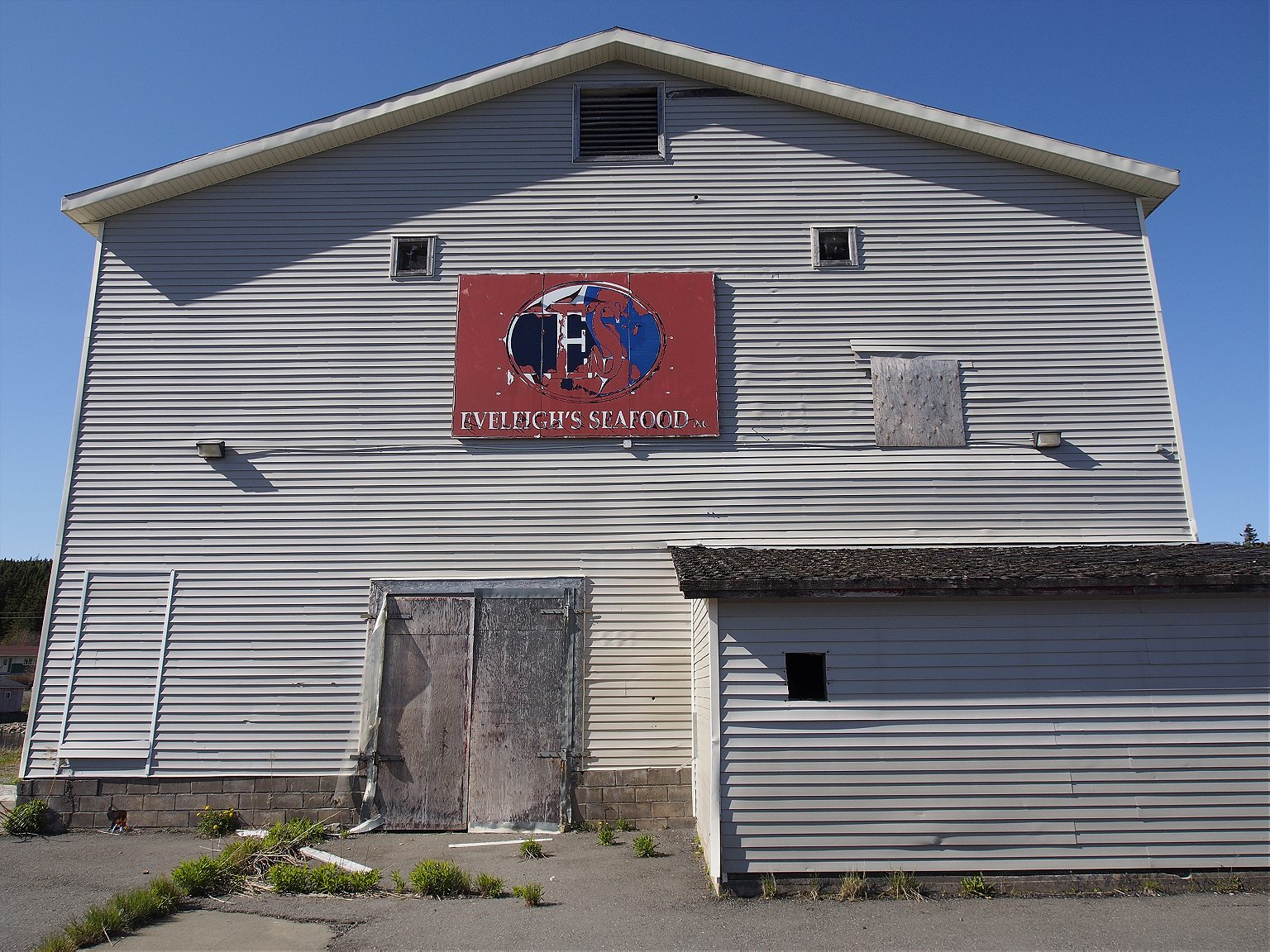
When Sharlene Hinz, the proprietor of Aunt Edna’s Guesthouse, told me her establishment would be closed for my visit, she recommended I get in touch with Doris Tucker, who rents out a cabin.
Doris told me to meet her in front of her house. I was to drive to the end of the road from the ferry and then turn right. I’d see a house painted in purple and white stripes.
Doris was dressed in a matching purple jacket accessorized with scarves and jewelry. She’s 76, with cauliflower white hair, but she is spryer than adults half her age and jumped from rock to rock as she toured me around Back Beach and Lighthouse Point, two of LBI’s jagged coastal edges. Walking back to the center of town, she was busy picking up litter or moving picnic tables so they didn’t muck up the grass. Spotting gaps in the wooden planks to Lighthouse Point she announced, “I’ve got to tell the town council to take care of that.”
“I love my island,” Doris told me. She said this many times during the time I spent with her, over walks, drinks, and meals.
In fact, LBI isn’t totally Doris’s island. She hasn’t lived on LBI as a full-time resident since she was 18. She left to attend nursing school in Montreal, fell in love with the city’s free spirit and stayed. She and her husband try to spend around half the year on LBI, but they also own a house in St. John’s, Newfoundland’s capital, and spend the winter at Century Village in Palm Beach where, she tells me, “there’s always something to do.”
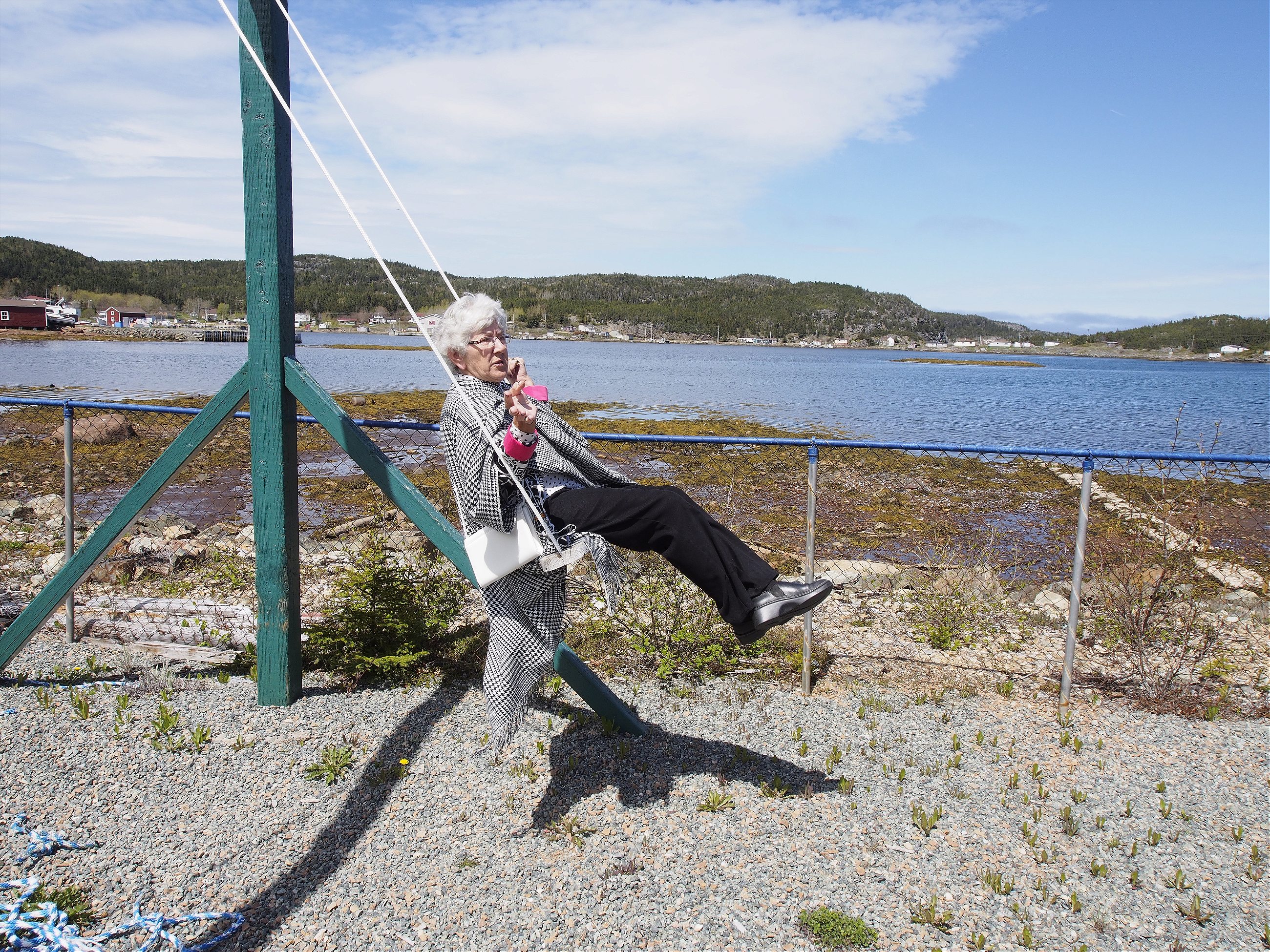
When it came time for the resettlement vote, Doris’s name wasn’t on the voting list. She appealed and won, was added to the list, and then voted against resettlement, casting herself against 89.47 percent of her neighbors, most of whom live on her island year round and have never left, but now want out.
People like her brother, George Tucker.
The contrast between Tucker siblings is stark. As Doris and I were on one of our tours, George, a gruff-looking man whose emotive eyes are shielded by glasses and beneath a baseball cap, was in a one-piece construction worker’s uniform bringing home freshly chopped firewood.
Pre-empting what she knew would be her brother’s entreaties over the island’s hardships, Doris tried to suggest that the lack of a grocery store wasn’t a problem, that there was enough food to get through a winter without ever having to leave the island.
Doris is 90 percent bullshit
“Bullshit, that’s bullshit. We gotta go get our grub every two weeks,” her brother fired back. “Doris is 90 percent bullshit.”
Challenging his sister to display a year-round commitment to the island, he suggests she “try drinking [her] red wine on the porch in winter.” (For the record, Doris’s drink of choice is a Manhattan).
George has little time for those who, like his sister, use LBI as a summer resort without enduring the challenges of living there year-round. “We gotta babysit this island for them.”
It’s in winter, George tells me, that wind and ice can keep the ferry from running, potentially leaving someone stranded. It’s not just an uncomfortable prospect—it happened last winter for three days. Sometimes the wind is so bad that even the helicopter, which the government runs as a replacement for the ferry, can’t fly.
(In a separate conversation, I asked Doris about what her brother said, about how the ferry didn’t run for three days last winter, and the potential safety risk that poses to residents. “No one died then,” she answered.)
George emphasized the heightened vulnerability the aging full-time residents are feeling. “We know it all. They don’t know about it. If you’re sick, you gotta get search and rescue to get you. In July these issues don’t happen. They’re just trotting along visiting friends.”
George’s strong feelings aren’t merely attributable to sibling rivalry. Nearly all the full-time residents I spoke to felt the same way about seasonals like Doris, who they believe mostly voted to stay and keep their summer homes. (Despite the fact that LBI is an island without secrets, the identities of all the 10 remain votes are a mystery, notwithstanding people’s suspicions).
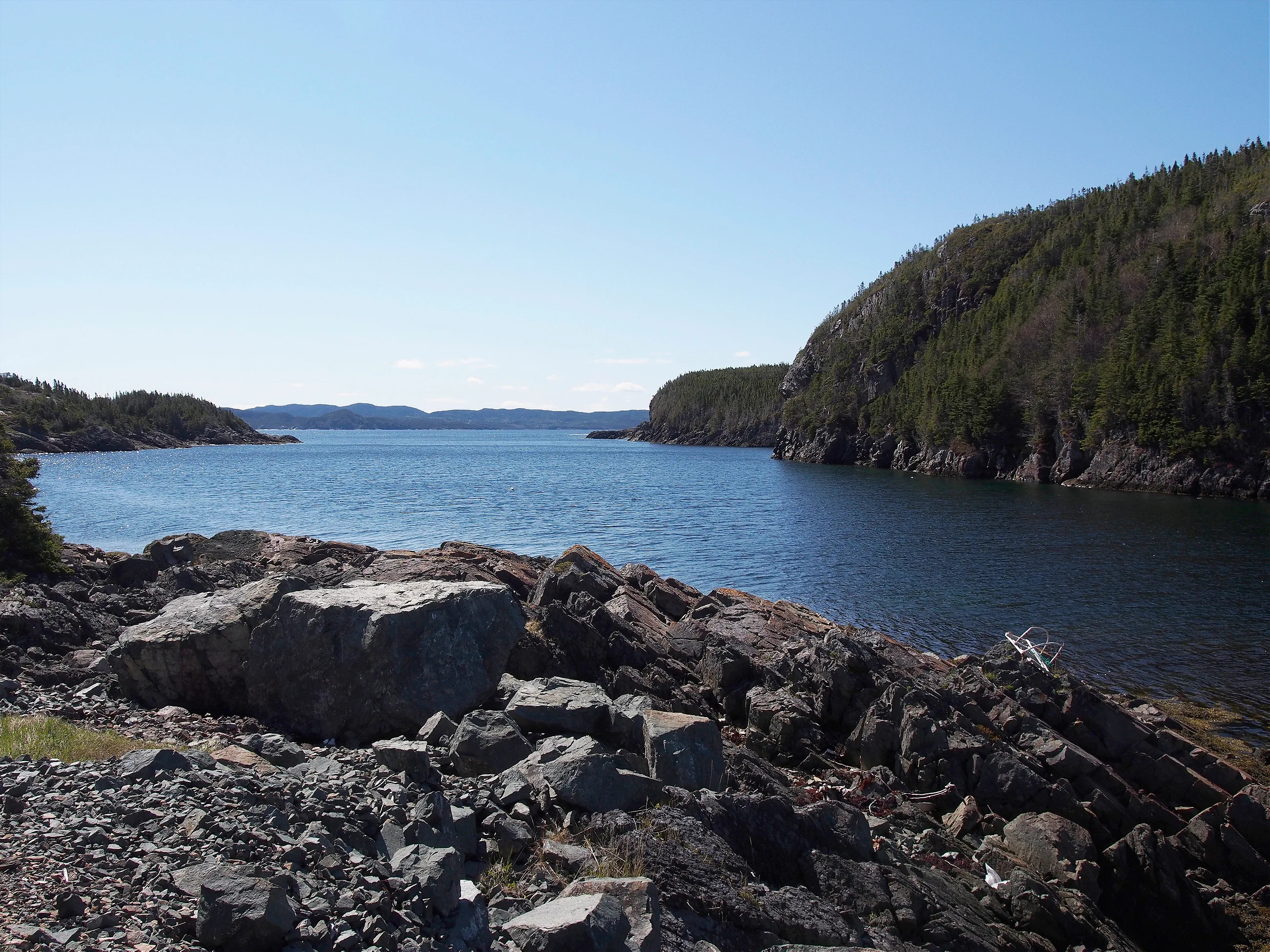
Several locals told me that my visit would be incomplete without meeting Selby Parsons in his shed, a 100-year-old structure that he moved to his property, and that goes by the name Poachers Lounge. Parsons, a 72-year-old fisherman, tall but not imposing, greeted me in faded jeans, a plaid shirt with a fleece over it, and a camouflage-print baseball hat. I was led into Poachers Lounge, where the walls and shelves were crowded with hunting rifles, pictures of fishing expeditions, historical photos and newspaper clippings, old canteens, lanterns, turntables, and dozens of baseball caps.
“It’s junk to some people. But it’s history to me,” Parsons said.
In its heyday, when the plant was still operating, Poachers Lounge used to host legendary parties, standing room only, and regular games of darts. It also played host to dances where people would “drink accordingly, and over socialize sometimes,” Weir told me.
Parsons’ eyes catch an old picture from a Halloween party with him and others dressed as clowns. There’s a bar area off to the side with a small pile of empties on display and a visitor’s log filled with messages of thanks. A seven-foot-long chain made of bottle caps hangs on the wall.
“That’s a couple of weekends drinking,” he told me.
There isn’t much drinking that happens in Poachers Lounge anymore. Mostly just Parsons and Weir, who are best friends. But even they have switched to tea some of the time. I’m told that this summer, on Canada Day (July 1), Parsons opened Poachers Lounge for the whole community. A local Newfoundland band, The Kippers, played, and for a day the community was again united.
“It was probably the best party I’ve ever been to,” Hinz told me over the phone. “That was a Newfoundland time, in every sense of the word.”
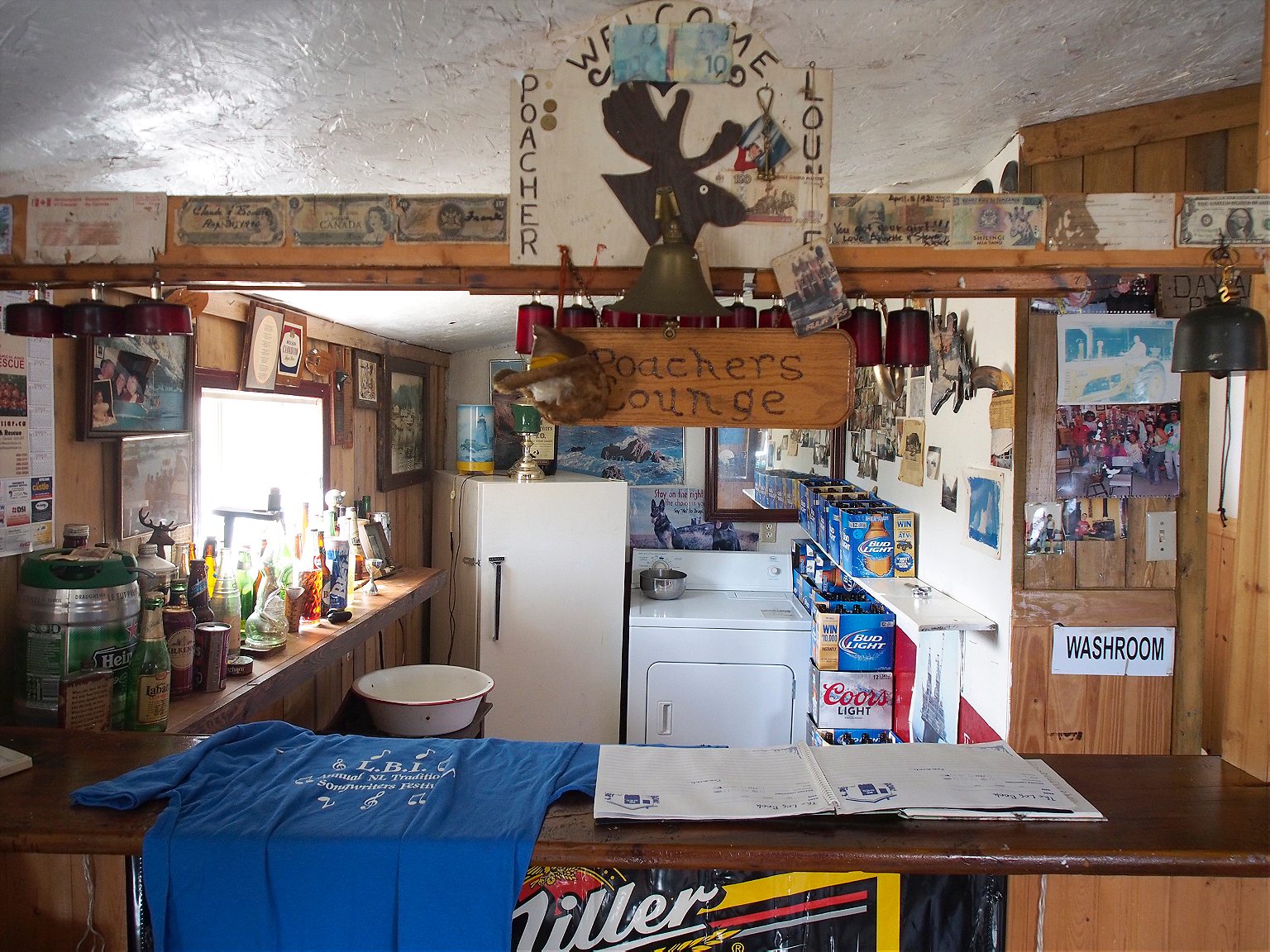
Parsons seconded the notion that for a community of mostly senior citizens, toughing it out through the winter isn’t what it used to be.
“Too hard, buddy,” he told me. “Long ways here. Long ways to get to hospital.”
Thankfully, there hasn’t been a medical emergency in years, though while I was visiting, a man interrupted a dinner I was sharing with the island’s three retired nurses after his dog gave him a nasty bite. When they’re in town during the summer, the three women act as LBI’s on-call medical team. After dressing his wound, they recommended he take pain killers.
“I’ve got beer,” he replied, and then disappeared out the door.
I asked Parsons about the seasonal residents, who carry on as if little has changed. He told me that they’re as welcome on the island as anyone else. Asked if they are caught up in their memories and are unwilling to accept the reality that has befallen LBI, he answered diplomatically: “It’s up to everyone to think what they can think.”
The only time Parsons showed the slightest hint of emotion was when I asked about letting some of the seasonal residents vote.
They shouldn’t have voted, he said. “That was for the full-time residents.”
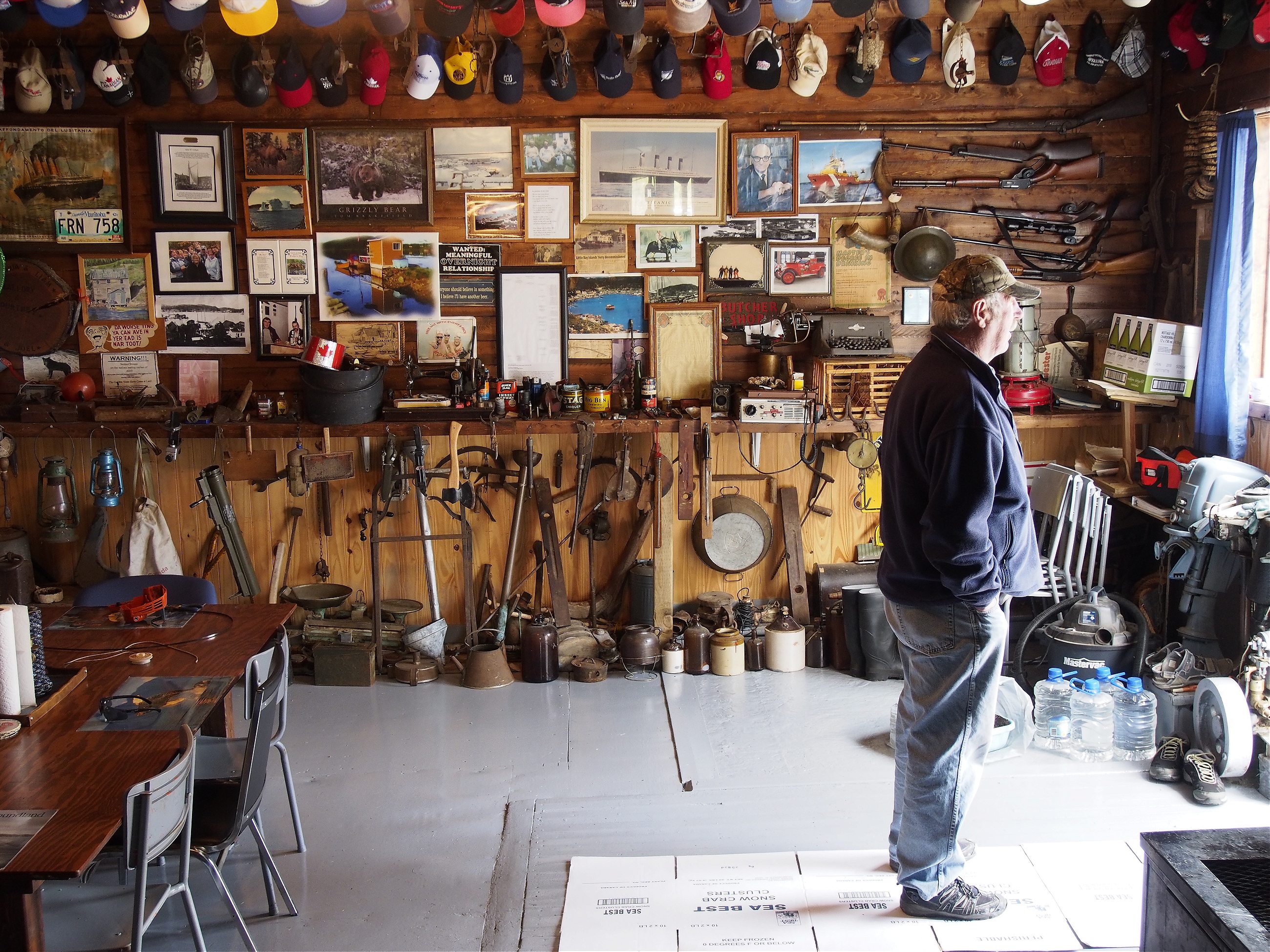
It’s been a full-timer, Barb Grimes, who’s probably suffered the most since the vote. Grimes works at LBI’s post office, where a combination of poor fluorescent lighting, drab linoleum, stacks of unsold envelopes, and the emptiness of the room itself, add up to a rather depressing workplace. Not even the Queen is smiling in the picture of her that hangs on the wall.
It was in here, through the long, dark winter, when the seasonal residents were scattered off the island, that Grimes, who everyone assumes voted to stay because she has a job, bore the brunt of the community’s reaction. Locke, the Newfoundland Hydro employee who’s open about his vote against resettlement, may have become unpopular in the community as a result, but his job doesn’t place him behind a counter to face his neighbors day in and day out.
Grimes is a veteran of LBI’s post office, having worked there since 1999. She laughed when I asked if it’s ever busy. On average, two-to-four people will come in on mail delivery days (every weekday but Thursday). Her years behind the desk have offered her a window into town life.
“Look how peaceful it is,” she whispered, staring outside into the forest.
Since the resettlement vote, that peace has been disturbed.
“Only God knows what it felt like to be behind this counter after the vote,” Grimes told me, sounding despondent.
There hasn’t been one particular instance, but for a town that only had 42 people living in it through winter, the basic levels of friendship and community that you’d expect to exist vanished after the vote.
“A lot of people has changed towards me,” she said softly.
Has it worn her down?
“Yesss,” she sighed. “Wears everybody down, after a while. I’m telling you.”
Difficult as it’s been, she’s undeterred. “I did nothing wrong,” she said.
(Despite hinting at how she voted, Grimes was one of the few residents who wouldn’t confirm her vote, although the widespread belief is that she voted to stay. And though she might not feel it, many of her neighbors said they hold no grudge against her. Weir, and several others, said they all understand why someone with a job would have voted to stay.)
As Grimes and I spoke, a man came in to mail a letter. Not saying a word, he approached the counter, threw down his letter, and walked out without so much as acknowledging her presence. I asked Grimes if it was always like that. She shook her head. Not before the vote.
The scene reminded me of when George Tucker’s wife, Ruth, remarked how the island is “not a friendly place anymore.” Another resident, Lem Jones, said the same. “People are against each other now,” Jones told me.
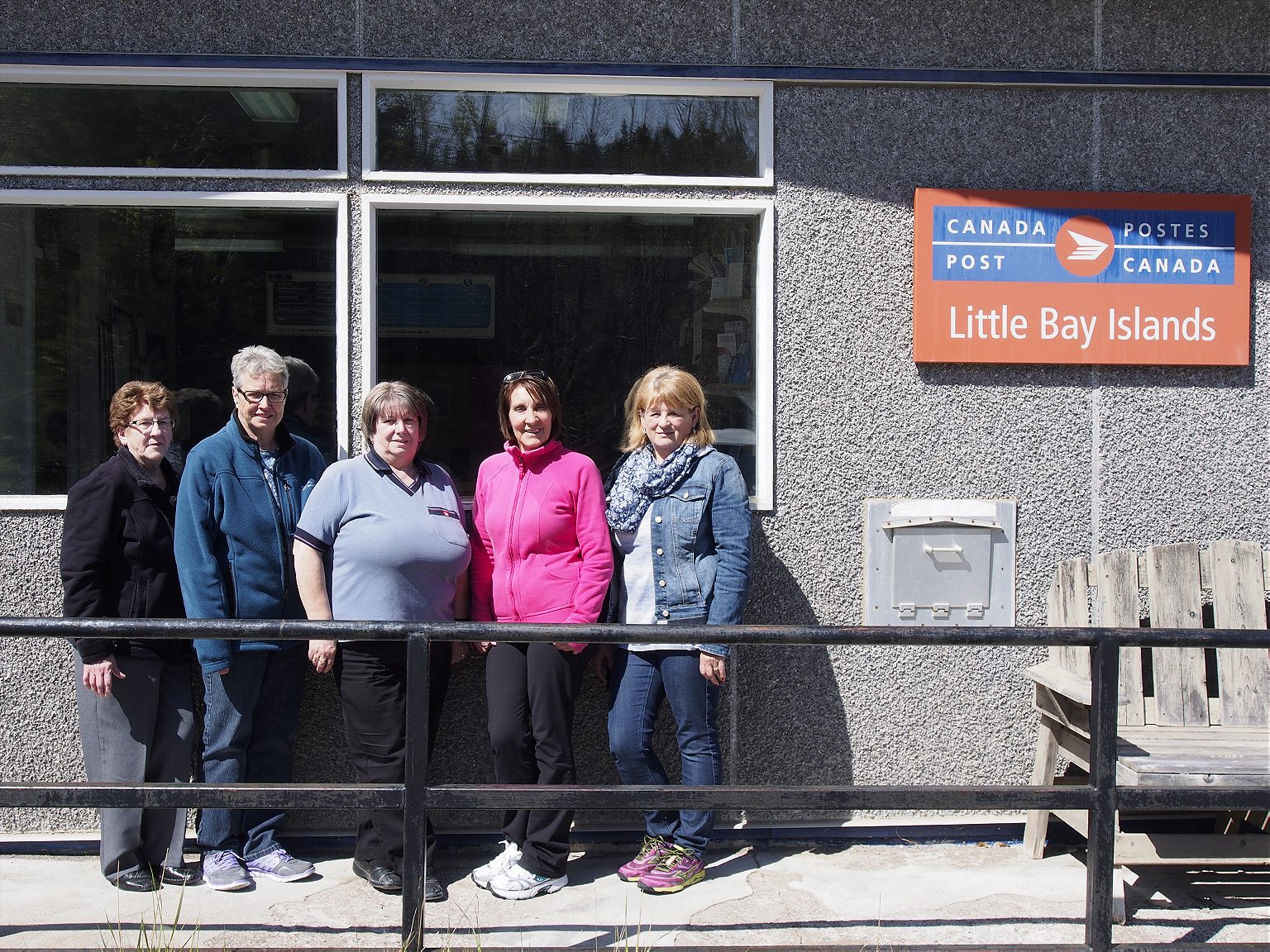
No one offered a grand example to demonstrate how the island has changed. Besides small instances like that in the post office, it’s largely intangible. A community that was built upon unity and solidarity is now divided into camps. There are those who voted to stay, those who voted to leave, seasonal residents, and full-time residents. Everyone has an opinion about the other. Those divisions have driven permanent wedges through a community that has never been pitted against itself like that before.
Even still, the divisions that have seriously altered LBI’s social landscape have yet to prove fatal. Four friends still visit Grimes at the post office for an hour every mail delivery day, though they don’t talk about resettlement. A women’s knitting and quilting group, the Circle of Friends, still meets weekly. Despite lingering bitterness, there seems to be an understanding among all residents that circumstance, and a poorly designed policy, is more to blame for what’s befallen LBI than any amount of naked self-interest.
There’s a widely held belief that the Newfoundland government never wanted relocation to pass. They never earmarked specific funds in case the measure passed. And there is no question that Newfoundland is broke. The province is currently running a $1.8 billion deficit with a population of just over 500,000 and an economy tied to fishing and oil. Keeping LBI going, at a cost of $21 million over 20 years, is a much easier sell for a heavily indebted government than an immediate payout of $14.5 million to 95 seniors.
“A screw up right from the beginning. And it’s still a screw up,” Locke told me.
Referendum or not, LBI will die anyway
The government says it’s reviewing the resettlement policy. But with or without government assistance, there’s little doubt that LBI’s future is bleak. In the end, referendum or not, LBI will die anyway, its citizens drifting off to settle in other towns.
LBI residents must now decide when to get off the island. Resettlement and the ensuing conflict has jolted everyone to the point that most accept the end is approaching.
People will leave at their own pace. Weir is determined to stay as long as his doctor says he and his wife are able. Parsons is leaving this winter for the first time, but plans to return in the spring. It will be a quiet winter for Grimes in her post office.
LBI today might not be what it used to. A government’s false promise has permanently torn at its social fabric. But on the flip side, if the funds weren’t there in the first place, at least in the aftermath the residents are given one more opportunity to love their island, and sail away on their own terms. Maybe that’s only a silver lining, but in a shitty situation, at least it’s something.
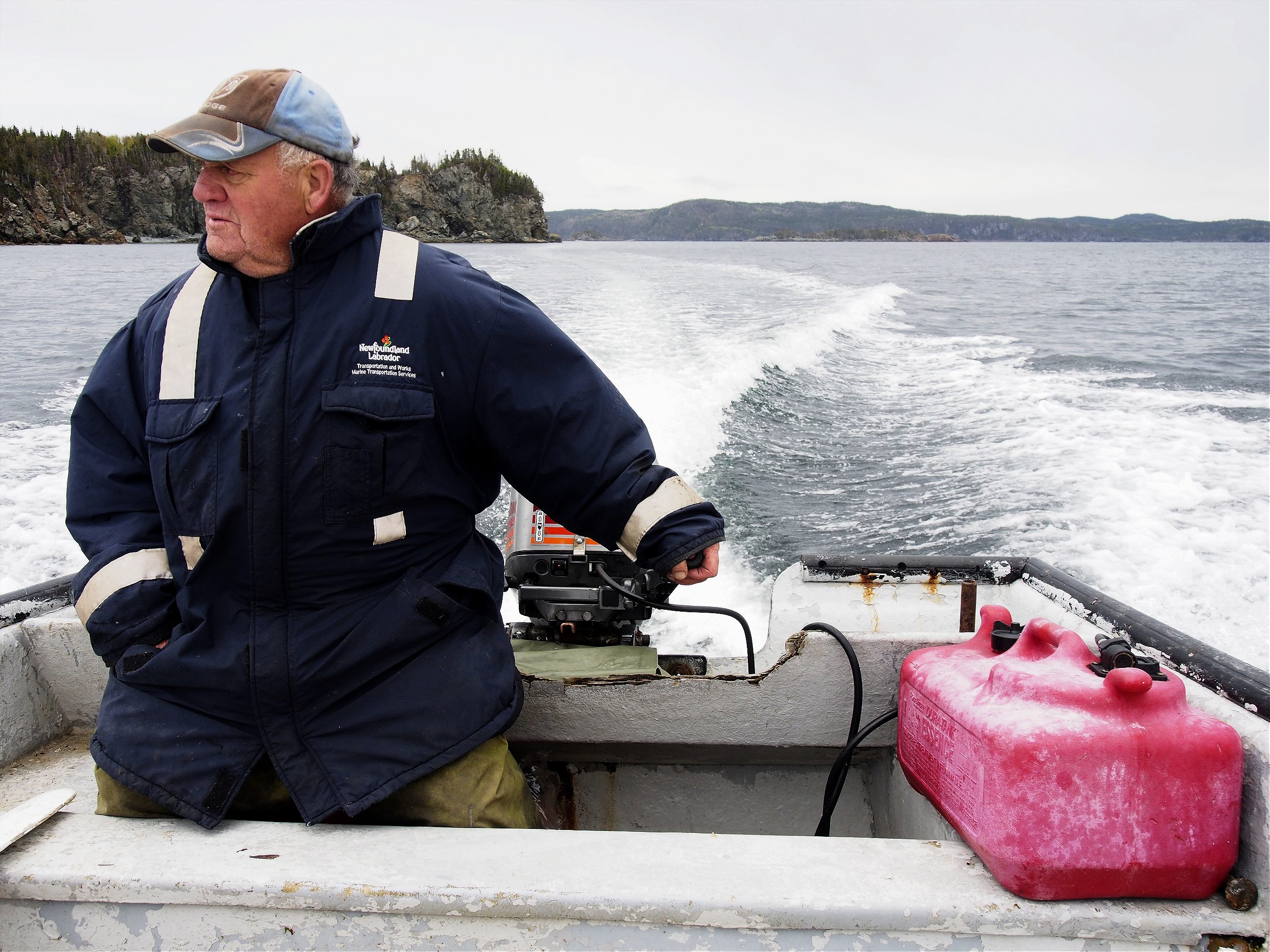
After the summer, I called Hinz with some follow-up questions. During our conversation I asked what was new.
“People are leaving,” she said.
Hinz told me she expects only around 20 residents will stay through the winter. Some leaving permanently, including at least one using the pretext of helping with the grandkids, others just for the winter with plans to return next spring.
With only 20 or so left on the island, residents are beginning to suspect a government update on the resettlement process. Hinz heard it may come in the early fall. (If true, this comports with information I received in an e-mail from Newfoundland’s Department of Municipal Affairs telling me it anticipated its review of the resettlement policy “will be completed by late 2016.”)
“Something is going on,” she said, after noting that the provincial energy company, Nalcor, called her up and asked for some rooms.
During my visit, several residents told me they felt the government’s hope was that the situation would grow so dire that most people would feel compelled to leave on their own, making it easier to push out the remaining few.
No one can know precisely what the government’s plan or hope was for LBI, what it expected the resettlement process to yield, or what it may or may not announce. Regardless, the aftermath of the resettlement vote has certainly made its job easier, and in the event of some form of payout, cheaper. It won’t have to justify paying out millions it can’t afford, nor will it have to worry about an island of elders floating on a sea of vulnerability.
I also called Weir. It was nice to hear his voice again, his thick Newfoundland timbre. During our call I didn’t ask Weir about his future plans, about where he thinks he’ll end up. I didn’t want to—there was something about the contentment in his voice that made me not want to take him there. What time he and so few others have left on LBI is already tarnished. But for now, they’re still there, and if they can, they hope to stay a little bit longer.
“Come back,” he said, “and visit again.”
Update: The provincial government calculated it would save $3 million through resettlement. An earlier version of this story misstated the calculation.